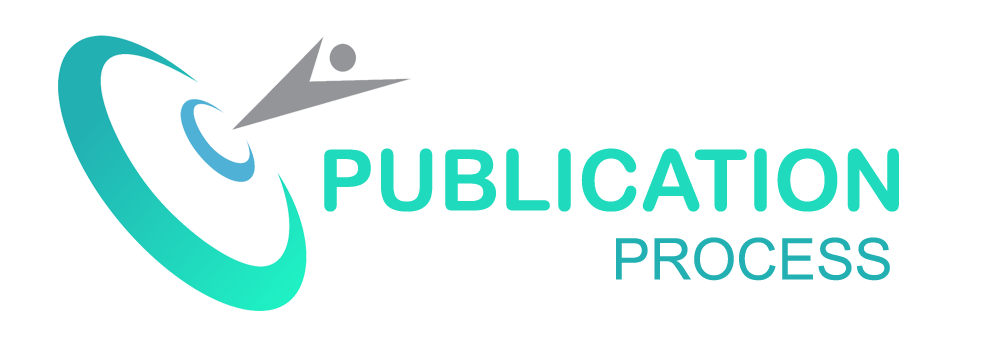COOPERATIVE DEVELOPMENT STRATEGY IN EFFORTS TO INCREASE COMPETITIVENESS IN KARAWANG REGENCY (CASE STUDY ON GROUP OF NON-EMPLOYEE COOPERATIVES IN KARAWANG REGENCY)
DOI:
https://doi.org/10.36805/manajemen.v3i1.243Abstract
Abstract The purpose of the research to find out how the implementation of non-employee cooperative management strategy in Kabupaten Karawang. Research with qualitative approach based on postpositivesme philosophy, is used to examine the natural object condition where the researcher is as the key instrument, the sampling of the data source is done purposively, the collecting technique with triangulation, the data analysis is inductive / qualitative, and the result of more qualitative research Emphasizing the meaning of generalization. From the results of research, obtained the following conclusions: (1). Non-Employee Cooperatives in Kabupaten Karawang that have been established Implementation Strategy management is still not optimal, (2). The concept of competitiveness of non-Employee Cooperatives in Kabupaten Karawang as an independent economic institution, has not been applied, (3). Constraints faced by cooperatives in facing the competitiveness of cooperatives implicate inhibiting the ability of the competitiveness of cooperatives in Karawang regency, especially Human Resources which is the main resources as a driver of cooperatives and strategic management of human centered cooperatives, (4). Cooperative development strategies in an effort to increase competitiveness require development and require the attention of various parties. Furthermore, the established cooperatives should apply strategic management by applying the organization's and management's standards seen from the organization. Keywords: Cooperative, Strategic Management, Competitiveness.Downloads
References
Daftar Pustaka
Buku dan Jurnal
Ahmad Sidik Omar, 2010. Faktor-faktor yang mempengaruhi perkembangan koperasi kredit hubungan jumlah anggota dan pertisipasi ekonominya terhadap total asset suatu koperasi kredit. Tesis. Universitas Terbuka. http://www.pustaka.ut.ac.id/dev25/index.php?option=com_content&view=article&id=1166:faktor-faktor-yang-mempengaruhi-perkembangan-koperasi-kredit-hubungan-jumlah-anggota-dan-partisipasi-ekonomi-terhadap-total-asset-suatu-koperasi-kredit&catid=21&Itemid=412
Alfred Hanel, 2005. Organisasi Koperasi, Graha Ilmu, Jogjakarta
Anwar Prabu Mangkunegara, 2009. Manajemen Sumber Daya Manusia Perusahaan, Remaja Rosdakarya, Bandung. p.2
Ardhuan Yuananda, 2013. Strategi Pengembangan Koperasi Samitra Kecamatan Semarang Selatan Kota Semarang. Jurnal. Universitas Negeri Semarang. http://journal.unnes.ac.id/sju/index.php/edaj
Asted Duriani Poeringtyas, 2010. Strategi Pengembangan Koperasi Setia Budi Wanita Dengan Pendekatan Analisis Swot. Tesis. STIE Malangkucecwara. Malang.
http://osrel.stie-mce.ac.id/?page=thesis&level=s1&id=7515
Burhan Bungin, 2008. Penelitian Kualitatif, Kencana Prenada Media Group, Jakarta
David, Fred R, 2012. Manajemen Strategis, Salemba Empat, Jakarta, p. 17,p.18.p.20,p.21,p. 229.
Farah Bonita, 2013. Strategi Pengembangan Industri Kecil Kerajinan Batik Di Kota Semarang. Jurnal. Universitas Negeri Semarang. http://journal.unnes.ac.id/sju/index.php/edaj.
Freddy Rangkuti, 2006. Analisis SWOT: teknik membedah kasus bisnis, Gramedia Pustaka Utama, Jakarta.
Hill, Mc Graw, 2011. Manajemen Sumber Daya Manusia Mencapai Keunggulan Bersaing, Salemba Empat, Jakarta,p.95
Iman Suhartono, 2011. Strategi Pengembangan Koperasi Berorientasi Bisnis. Jurnal. STIE AMA Salatiga.
Jochen Ropke, 2012. Ekonomi Koperasi, Graha Ilmu, Yogyakarta
Lexy Moleong, 2007. Metodologi Penelitian Kualitatif, Edisi Revisi, Remaja Rosdakarya, Bandung
Panji Anoraga, 2009. Manajemen Sumber Daya Manusia Bisnis, Rineka Cipta, Jakarta, p. 109
Soetrisno,Noer 2003. .Ekonomi Rakyat—Usaha Mikro dan UKM dalam Perekonomian Indonesia: Suatu Pandangan Struktural Alternatif.(www.smecda.com/.. ./Ekonomi%20Rakyat%20-%20Usaha%20Mikro%20dan%20UKM.Pdf)
Sondang P. Siagian, 2012. Manajemen Sumber Daya Manusia, Bumi Aksara, Jakarta. p.27
Sugiyono, 2011. Metode Penelitian Kuantitatif , Kualitatif, dan R&D, Alfabeta, Bandung
Susilawetty dan Karna Supena,2013. Peran Koperasi Serba Usaha Mutiara Mandiri Untuk Meningkatkan Perekonomian Masyarakat Gunung Sindur Kabupaten Bogor. Jurnal. Universitas Muhammadiyah Jakarta. ISSN 2338-3321
Tati Suhartati Joesron, 2005. Manajemen Strategik Koperasi, Graha Ilmu, Yogyakarta.
Tiktik Sartika Partomo, 2009. Ekonomi Koperasi, Ghalia Indonesia, Bogor
Urip Triyono, 2003. Pengembangan Koperasi Desa Pantai untuk Menunjang Pembangunan Wilayah Pesisir secara Berkelanjutan (Studi Kasus Koperasi Tambak di Kabupaten Indraamayu).Disertasi. Program Doktor. Program Pascasarjana Institut Pertanian Bogor. Bogor
Veithzal R dan Sagala.E.J, 2011. Manajemen Sumber Daya Manusia untuk Perusahaan, Rajawali Press. Rajagrafindo Persada Jakarta. p16, p.28
Wheelen, Thomas L. and Hunger, J David, 2003 Manajemen Strategis, Andi, Yogjakarta, p4
http://www.kadin-indonesia.or.id/enm/images/dokumen/KADIN-98-3000-1072008.pdf
Peraturan, Kebijakan dan Buku Pedoman
Laporan Interim Penyusunan Grand Design Pembangunan Koperasi Kabupaten Karawang Tahun 2013
Rencana Strategis Dinas Koperasi dan Usaha Mikro Kecil dan Menengah Tahun 2010-2014
Undang Undang Dasar Negara Republik Indonesia Tahun 1945
Undang-Undang Nomor 25 Tahun 1992 tentang Perkoperasian
Laporan RAT KKT “Bagja†Tahun 2010-2014
Downloads
Published
Issue
Section
License
Authors who publish in Jurnal Manajemen dan Bisnis Kreatif agree to the following terms:
- Authors retain copyright and grant the journal right of first publication with the work simultaneously licensed under a Attribution-ShareAlike 4.0 International (CC BY-SA 4.0) License that allows others to share the work with an acknowledgment of the work's authorship and initial publication in this journal.
- Authors are able to enter into separate, additional contractual arrangements for the non-exclusive distribution of the journal's published version of the work (e.g., post it to an institutional repository or publish it in a book), with an acknowledgment of its initial publication in this journal.
- Authors are permitted and encouraged to post their work online (e.g., in institutional repositories or on their website) prior to and during the submission process, as it can lead to productive exchanges, as well as earlier and greater citation of published work (See The Effect of Open Access).








